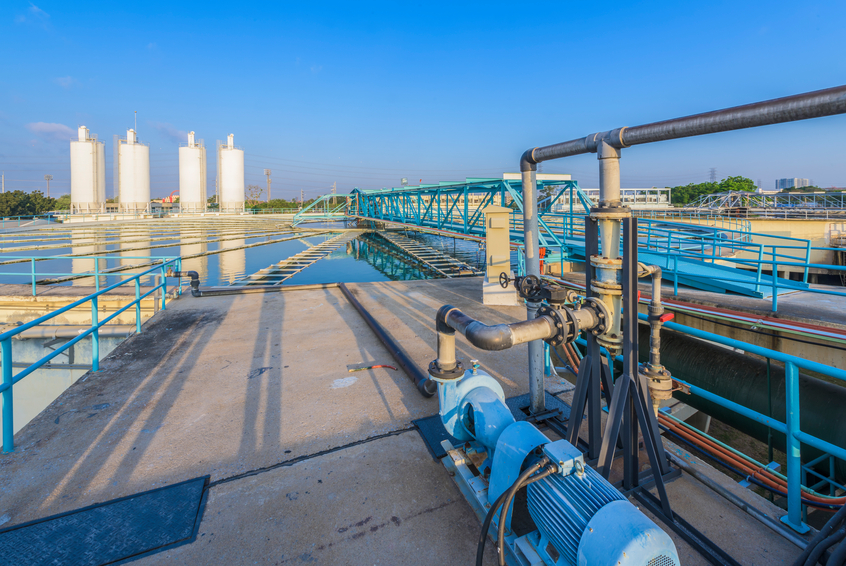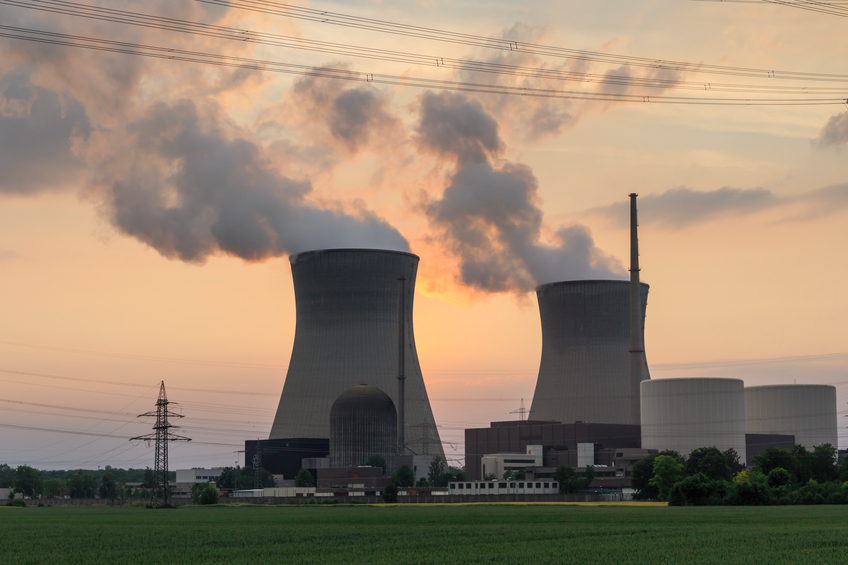Illinois Industrial and Laws/Rules/Ethics/Sexual Harassment 30 PDH Discount Package 1
Courses in this Package
Airport Snow and Ice Control Equipment (D03-006)
Detectors and Indicators for Industrial Facility Systems (D05-002)
Industrial Heat Pumps for Steam and Fuel Savings (D01-001)
Planning and Design of Hydroelectric Power Plants (S04-002)
Process Controls for Industrial Facility Systems (D05-001)
Radiation Protection (D07-001)
Radiological Control: Radiological Standards (N02-004)
Sexual Harassment Prevention for Illinois Professionals (IL1-001)
Engineering Laws, Rules, and Ethics for Illinois Professional Engineers (IL2-001)

This online engineering PDH course provides guidance about the selection process for snow removal and ice control equipment.
The selection process involves three components: identifying the type of equipment for a specific task, determining the number of such equipment, and using the recommended equipment specification to better ensure that the equipment performs the required task.
Airport operators should maintain runways and taxiways if possible, to a “no worse than wet” condition during winter storms. To meet this challenge, the purchase of snow and ice control equipment will not only require significant financial commitments, but also require careful planning and a fundamental understanding of snow and removal equipment.
This 3 PDH online course is intended for industrial, mechanical and electrical engineers, as well as other technical personnel interested in learning more about the equipment used to control snow and ice at airports.
This PE continuing education course is intended to provide you with the following specific knowledge and skills:
- Understanding how snow and ice control equipment are classified to the specific task(s) that the equipment is designed to perform
- Familiarizing with the selection process for various snow removal and ice control equipment
- Learning about the different types of snow removal and ice control equipment
- Familiarizing with the operational standards and compliance testing process
Upon successful completion of the quiz, print your Certificate of Completion instantly. (Note: if you are paying by check or money order, you will be able to print it after we receive your payment.) For your convenience, we will also email it to you. Please note that you can log in to your account at any time to access and print your Certificate of Completion.

This online engineering PDH course provides a basic understanding of instrumentation and control necessary for safe operation and maintenance of energy facilities and their support systems. In particular, this course describes the principles of construction, operation, and failure modes for various types of detectors including temperature detectors, pressure detectors, level detectors, flow and position indicators.
This 5 PDH online course is applicable to mechanical, industrial and nuclear engineers, construction and design personnel, technical staff and facility operators who are interested in gaining a better understanding of detector applications.
This PE continuing education course is intended to provide you with the following specific knowledge and skills:
- Learning the different types of equipment detectors and indication circuits
- Understanding the operation of equipment detectors and indication circuits
- Knowing the failure modes of equipment detectors and indication circuits
In this professional engineering CEU course, you need to review Modules 1 through 5 of the Department of Energy Publication DOE-HDBK-1013/1-92, "Instrumentation and Control".
Upon successful completion of the quiz, print your Certificate of Completion instantly. (Note: if you are paying by check or money order, you will be able to print it after we receive your payment.) For your convenience, we will also email it to you. Please note that you can log in to your account at any time to access and print your Certificate of Completion.

This online engineering PDH course describes why heat pumps save money, how heat pumps work, how much energy heat pumps can save, common types of heat pumps, heat pump applications and examples of heat-pump applications.
Industrial heat pumps are a class of active heat-recovery equipment that allows the temperature of a waste-heat stream to be increased to a higher, more useful temperature. Consequently, heat pumps can facilitate energy savings when conventional passive-heat recovery is not possible.
This 1 PDH online course is applicable to engineers who work in industrial facility designs where heat pumps are used.
This PE continuing education course is intended to provide you with the following specific knowledge and skills:
- Why heat pumps save money
- How heat pumps work
- How much energy heat pumps can save
- Common types of heat pumps
- Heat pump applications
- Examples of heat-pump applications
In this professional engineering CEU course, you need to review the material contained in "A Best Practices Steam Technical Brief, Industrial Heat Pumps for Steam and Fuel Savings", DOE/GO-102003-1735, June 2003.
Upon successful completion of the quiz, print your Certificate of Completion instantly. (Note: if you are paying by check or money order, you will be able to print it after we receive your payment.) For your convenience, we will also email it to you. Please note that you can log in to your account at any time to access and print your Certificate of Completion.

This online engineering PDH course presents a discussion of the general, architectural and structural considerations applicable to the design of hydroelectric power plant structures. It is intended for guidance on establishing minimum criteria in the planning and design of such structures.
The engineering of hydroelectric projects is a highly specialized filed, particularly the engineering design and operational activities.
This 4 PDH online course is applicable to civil, structural and geotechnical engineers, as well as design and construction personnel involved with the planning and design of hydroelectric power plant structures.
This PE continuing education course is intended to provide you with the following specific knowledge and skills:
- Location selection criteria of powerhouse and switchyard
- Types of powerhouse structures and type selection criteria
- General arrangement of powerhouse and location of main transformers
- Installation of powerhouse and switchyard equipment
- Interior and exterior architectural design
- Determination of structural requirements
In this professional engineering CEU course, you need to review the US Corps of Engineers Publication EM 1110-2-3001, "Planning and Design of Hydroelectric Power Plant Structures".
Upon successful completion of the quiz, print your Certificate of Completion instantly. (Note: if you are paying by check or money order, you will be able to print it after we receive your payment.) For your convenience, we will also email it to you. Please note that you can log in to your account at any time to access and print your Certificate of Completion.

This online engineering PDH course provides a basic understanding of instrumentation and control necessary for safe operation and maintenance of energy facilities and their support systems. In particular, this course describes the principles of operation for control systems used in evaluating and regulating changing conditions in a process.
This 5 DH online course is applicable to industrial and nuclear engineers, construction and design personnel, technical staff and facility operators who are interested in gaining a better understanding of process controls.
This PE continuing education course is intended to provide you with the following specific knowledge and skills:
- Principles of control systems
- Control loop diagrams
- Types of control systems
- Controllers
- Valve actuators
In this professional engineering CEU course, you need to review Module 7, "Process Controls" of the Department of Energy Publication DOE-HDBK-1013/2-92, "Instrumentation and Control".
Upon successful completion of the quiz, print your Certificate of Completion instantly. (Note: if you are paying by check or money order, you will be able to print it after we receive your payment.) For your convenience, we will also email it to you. Please note that you can log in to your account at any time to access and print your Certificate of Completion.

This online engineering PDH course presents the regulations, policies and procedures for the safe use and handling of radioactive materials and radiation generating devices. It describes the effects of radiation and how to minimize the dangers present in a radiation filled environment.
Nuclear chemicals are present in many modern facilities. It is often harnessed as a cleaner source of energy than fossil fuels. However, the energy stored in these volatile chemicals may lead to many dangers. Consequently, it is very important to strictly regulate how to handle these chemicals in order to protect employees working in hazardous environments.
This 7 PDH online course is applicable to nuclear, chemical, and safety engineers and other technical professionals who are interested in gaining a better understanding about the requirements of protecting workers from radioactive materials.
This PE continuing education course is intended to provide you with the following specific knowledge and skills:
- Understanding the properties of radioactive substances
- Familiarizing with the different licenses required to work with radiation
- Learning how to properly handle radioactive materials
- Learning how to transport radioactive materials
- Learning how to handle radioactive waste
Upon successful completion of the quiz, print your Certificate of Completion instantly. (Note: if you are paying by check or money order, you will be able to print it after we receive your payment.) For your convenience, we will also email it to you. Please note that you can log in to your account at any time to access and print your Certificate of Completion.

This online engineering PDH course, organized into three parts, presents information about the U.S. Department of Energy’s radiological standards.
Part 1 – Administrative Control Levels and Dose Limits. To accomplish DOE's objective of maintaining individual doses well below regulatory limits, challenging numerical administrative control levels should be established below the regulatory limits to administratively control and help minimize individual and collective radiation dose. These control levels should be multi-tiered with increasing levels of authority required to approve higher administrative control levels.
Part 2 – Contamination Control and Control Levels. Control of radioactive contamination is achieved by using engineered controls and worker performance to contain contamination at the source, reducing existing areas of contamination, and promptly decontaminating areas that become contaminated.
Part 3 – Posting. Radiological postings are intended to alert individuals to the presence of radiation and radioactive materials and to aid them in controlling exposures and preventing the spread of contamination. The types of postings required vary based on the application.
This 2 PDH online course is applicable to industrial engineers, design and construction personnel, and other technical professionals who are interested in gaining a better understanding of radiological standards.
This PE continuing education course is intended to provide you with the following specific knowledge and skills:
- Understanding administrative control levels and dose limits
- Understanding contamination control and control levels
- Understanding posting provisions and standards
Upon successful completion of the quiz, print your Certificate of Completion instantly. (Note: if you are paying by check or money order, you will be able to print it after we receive your payment.) For your convenience, we will also email it to you. Please note that you can log in to your account at any time to access and print your Certificate of Completion.

This online PDH course presents a training on sexual harassment prevention in order to adopt and actively implement policies that ensure that workplaces are safe for employees to report and express their concerns about sexual harassment.
The Illinois Human Rights Act makes it a civil rights violation “[f]or any employer, employee, agent of any employer, employment agency or labor organization to engage in sexual harassment.” 775 ILCS 5/2-102(D).
The Illinois General Assembly finds that tolerance of sexual harassment has a detrimental influence in workplaces by creating a hostile environment for employees, reducing productivity, and increasing legal liability. Therefore, every employer in the State of Illinois is required to provide employees with sexual harassment prevention training that complies with section 2-109 of the Illinois Human Rights Act (“IHRA”).
This 1 PDH online course is applicable to professionals licensed in the State of Illinois and who are required to demonstrate continuing professional competency in sexual harassment prevention training as a condition of their license renewal.
This PE continuing education course is intended to provide you with the following specific knowledge and skills:
- Gaining an overview of sexual harassment prevention consistent with the Illinois Human Rights Act
- Familiarizing with types of unlawful sexual harassment, unwelcome behavior and working environment
- Learning about examples of conduct that may constitute unlawful sexual harassment
- Understanding sexual harassment in online environments
- Understanding employer responsibilities in the prevention, investigation, and corrective measures on sexual harassment
- Familiarizing with the Federal and State statutory laws concerning sexual harassment including remedies available to victims
Upon successful completion of the quiz, print your Certificate of Completion instantly. (Note: if you are paying by check or money order, you will be able to print it after we receive your payment.) For your convenience, we will also email it to you. Please note that you can log in to your account at any time to access and print your Certificate of Completion.

This online engineering PDH course presents the laws and rules of ethics and professional responsibility governing the practice of engineering in the State of Illinois.
Engineering ethics is (1) the study of moral issues and decisions confronting individuals and organizations involved in engineering and (2) the study of related questions about moral conduct, character, ideals and relationships of peoples and organizations involved in technological development (Martin and Schinzinger, Ethics in Engineering).
Excerpts from the Professional Engineering Practice Act of 1989, 225 ILCS 325 and the Illinois Administrative Code, Part 1380, which relate to the rules of profession conduct, continuing education requirements, proper use of seal and other pertinent regulatory provisions are presented in this course.
This 2 PDH online course is applicable to Professional Engineers licensed in the State of Illinois who are required to demonstrate continuing professional competency in the Illinois Laws, Rules and Ethics as a condition of license renewal. For each renewal period, every licensee must complete thirty (30) professional development hours, at least one (1) of the 30 hours must be in professional ethics and one (1) of the 30 hours must be in the laws and rules regulating the practice of engineering in the State of Illinois.
This PE continuing education course is intended to provide you with the following specific knowledge and skills:
- Familiarizing with the laws and rules regulating the practice of engineering in the State of Illinois
- Learning about engineering ethics, the rules of professional conduct and responsibility
- Understanding the role of the Illinois Board and its disciplinary authority
- Understanding the continuing education requirements in the State of Illinois
- Gaining an overview of disciplinary cases, violations and their corresponding penalties imposed by the Illinois Board
Upon successful completion of the quiz, print your Certificate of Completion instantly. (Note: if you are paying by check or money order, you will be able to print it after we receive your payment.) For your convenience, we will also email it to you. Please note that you can log in to your account at any time to access and print your Certificate of Completion.